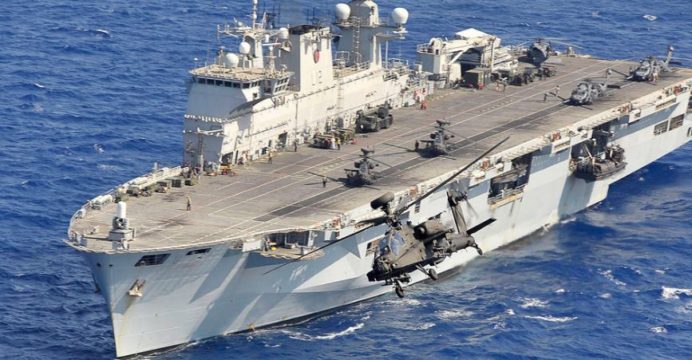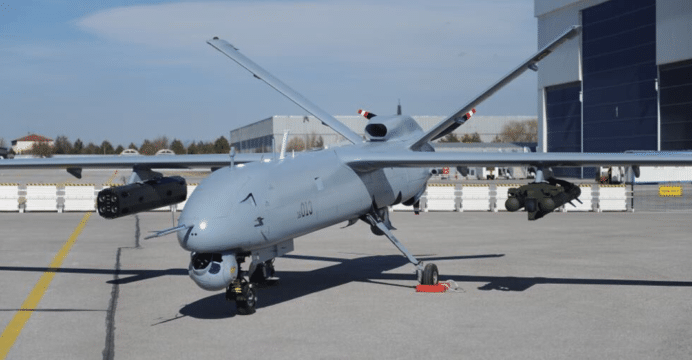If Turkey moves forward with its buy of a Russian air defense system, it will not be permitted to plug into NATO technology, and further action may be forthcoming that could affect the country’s acquisition or operation of the F-35, a top Air Force official said Wednesday.
Turkey has reportedly finalized a deal with Russia for the S-400, an advanced anti-aircraft missile system. According to
, Turkish Defense Minister Nurettin Canikli claimed that it had made an order for the missiles and further terms of the agreement were “just details now.”
If true, the development could have a drastic effect on Turkey’s military cooperation with the rest of NATO, which fears that Turkey is moving away from democratic norms and is fostering a closer relationship with powers such as Russia and China.
Heidi Grant, deputy undersecretary of the Air Force for international affairs, was unable to say exactly what course of action the United States would pursue if Turkey purchases the S-400.
“As a major NATO ally, we haven’t really looked into this yet,” she said in a Nov. 15 interview. “We’re going to have to start looking at, if they are going to go through with this, how we can be interoperable in the future. But right now, I can tell you our policies do not allow us to be interoperable with that system.”
Further complicating the issue is the planned delivery of Turkey’s first F-35s in 2018. Analysts worry that Turkey operating both the S-400 and F-35 together could compromise the jet’s security, as any data collected by the air defense system and obtained by Russia could help expose the joint strike fighter’s vulnerabilities. For a platform like the F-35, whose major strengths are its stealth and data fusion capabilities, that would be a disaster.
Grant agreed that a S-400 acquisition creates issues for Turkey’s use of the F-35.
“It’s a significant concern, not only to the United States, because we need to protect this high end technology, fifth-generation technology” but for “all of our partners and allies that have already purchased the F-35,” she said.
As far as potential actions the United States might take, Grant said the government will have to work through its options.
Grant spoke to Defense News on the floor of Dubai Air Show, where she met with companies and partner countries over the past four days. During this time, she did not have conversations with the Turkish delegation, she acknowledged.
Her comments echoed those of Gen. Petr Pavel, chairman of NATO’s military committee. In October, Pavel said that Turkey is free, as a sovereign nation, to make its own decisions in regards to military procurement, but will face “consequences” if a S-400 buy goes through.
What happens next?
Neither Grant nor Pavel have been willing to detail how the United States and NATO could respond to Turkey’s S-400 procurement, especially with regards to Turkey’s role in the F-35 program, and there’s no clear historical precedent.
Whenever the United States makes an agreement to export weapons to a foreign partner, that country is required to sign an agreement allowing the U.S. to do end-use monitoring to ensure it is not compromising sensitive technologies or information. That can include anything from a “check on how they are using the technology, who is on the same base with them [and] access that other countries may have to our high end technology,” noted Grant.
But the F-35 is not a typical program, being conceived of from the get-go as a partnership among countries that would pay to develop the jet, as well as reap the industrial benefits of building it.
Turkey is entrenched in the program on multiple levels — from the money it has spent to help design it, the more than 100 planes it plans to buy, to Turkish Aerospace Industries’ work on the center fuselage of every F-35, and the country’s role as a sustainment hub for the international joint strike fighter community. It’s not exactly clear what would happen if the United States rolls back its participation in the program.
Turkey’s industrial contributions to the F-35 are “easily replicable elsewhere” should the U.S. government decide to drop Turkey as an international partner on the program, Richard Aboulafia, an aerospace analyst for the Teal Group, told Defense News in an interview ahead of Dubai Airshow.
“The real greater concern is just pushing a large emerging military and economic power out of NATO and into something different and not at all in Western interests,” he said. “It’s a very big deal. It’s so big that I don’t think anyone knows quite what to do with it.”
Individual members of Congress have raised concerns about the Turkish government’s recent shift from NATO, but so far have not sounded alarm bells about an S-400 acquisition. In the past, lawmakers have had difficulty implementing restrictions on the country’s acquisition of the F-35.
For instance, Rep. David Cicilline, a member of the Foreign Affairs Committee, tried to block sales of the F-35 to Turkey in July after Turkish security personnel attacked protesters in Washington earlier in 2017. However, the amendment ultimately died without ever getting a vote.
A growing problem
How the U.S. and NATO respond to Turkey could set precedent for how much interoperability with Russian the United States is willing to accept from partner militaries in the Middle East and elsewhere.
Saudi Arabia plans to purchase the S-400 alongside the Terminal High Altitude Area Defense system built by Lockheed Martin. During a briefing at Dubai Airshow, Timothy Cahill, Lockheed’s vice president of air and missile defense systems, said that will create challenges for simultaneous use of both systems.
Meanwhile, the United Arab Emirates is interested in buying the F-35, but has also signed a memorandum of understanding with Russia for collaborating on a fifth-generation fighter based on the MiG-29. That, too, could create roadblocks for a future joint strike fighter acquisition.
“They are a sovereign nation, they can choose to go with other partners,” Grant said of the UAE’s work with Russian on a fifth-gen fighter. “But I have made it very clear that it makes it a little more difficult for our partnership as a coalition because we will not be interoperable. As of right now, our current policies are, we would not be interoperable with Russian equipment.”


